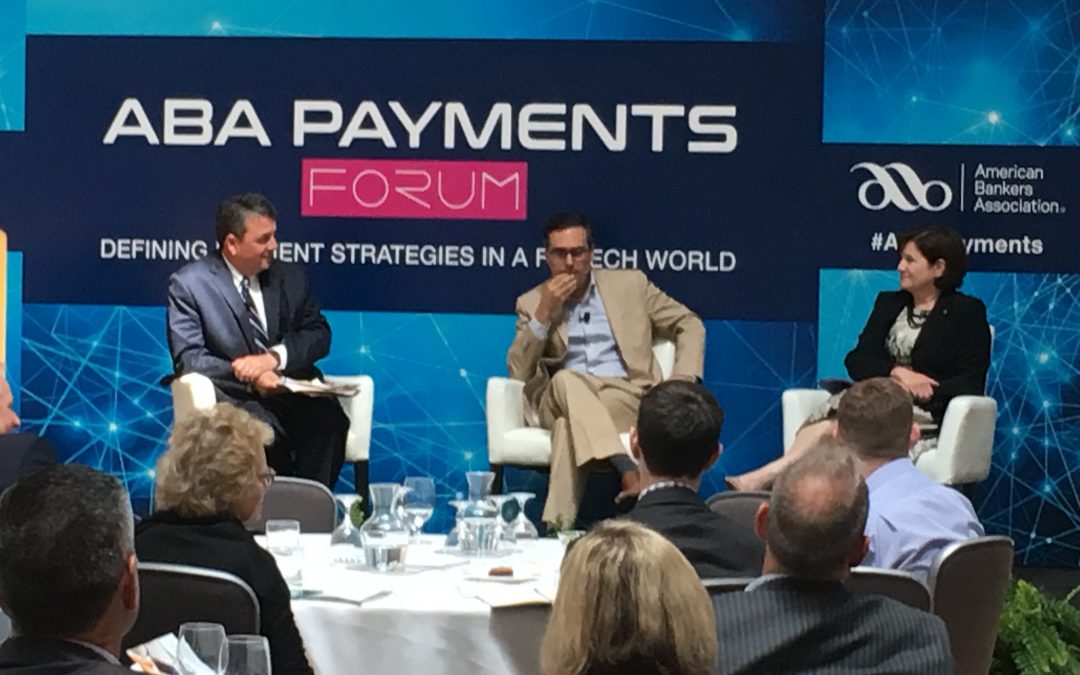WASHINGTON– Imagine a world where payments move like text messages. A number of bankers and fintech entrepreneurs have that vision for the future of payment systems worldwide.
While the U.S. payment system could operate more instantaneously, it is still functioning well overall, said Betsy Waters at the American Banking Association’s annual conference Thursday. Meanwhile, cross-border transactions are often fraught with extra fees and red tape.
The solution is moving payments to a blockchain-based, Distributed Ledger Technology (DLT) system, like the one fintech company Ripple licenses, which allows transactions to flow smoothly like a text message, Waters said. A customer can send a transaction using Ripple from the United States to Mexico in dollars using the digital form of currency called cryptocurrency and have the customer on the other end collect the money from his participating Mexican bank in Pesos. The foreign exchange is built in to the transaction and the participating banks are part of the same system.
“This is paralleling the space program to the moon,” ABAs’s Steve Kenneally said in his opening remarks. “It’s a big solution, but there are also some ancillary benefits.”
What makes blockchain technologies important among bankers is their combination of efficiency and security. There are speedy payment systems that exist on the web, but they are not without risks to customer data.
Blockchain technology consists of three distinct parts, Jerry Brito, executive director of coin center, a D.C.-based advocacy group, said. The blockchain itself, a series of containers enclosing time-ordered data in an unbreakable and distinct block, linked together; peer to peer networking; and a consensus mechanism, where all participants can agree on the rules of the road and monitor transactions as they happen.
Currently, payments move at the speed of 1000 transactions per second, which makes the entire operation very scalable, said Waters, U.S. sales director at Ripple.
“Understanding Blockchain technology is essential because most of your customers are going to be utilizing it down the road, and it will alleviate a lot of customer dissatisfaction,” James W. Lumadue Jr., senior manager of business development at Discover’s Pulse Network said. “It offers dependability, a straightforward process and overall piece of mind.”
Regulation of technologies like blockchain currently prevents full-scale, industry-wide adoption, but legislators like Rep. Randy Hultgren, R-Ill, co-chair of the Congressional Payments and Fintech Caucus, addressed the power of innovation within the fintech industry in an early-morning address to forum attendees Thursday.
While the technology’s current industry application is for across-border transactions, getting financial institutions to pilot the technology in domestic payments is still a work in progress, but committees of banks have been created to consider the issue.

